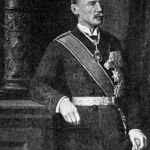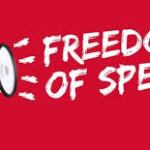

I was in Hong Kong on 1 July 1997 when the city officially was reunited with the mainland government. It was a joyous occasions.
At the time of the handover there was a promise that the Beijing Government would not interfere directly in Hong Kong affairs for 50 years but on the 23rd anniversary of that promise, on 1 July 2020, the same government imposed a new security law on the city.
Now anyone who organises, plans, commits or participates in independence movements, subversion, terrorism or collusion with foreign countries can be imprisoned for life.
One of the reasons for this drastic measure was the demonstrations over the past two years for greater civic freedoms and accountability. Though the vast majority of the demonstrators were peaceful, a violent minority did cause unnecessary disruption and damage. Now anyone, peaceful or violent, who gets involved in such protests can be jailed for life. 370 were arrested on the first day for protesting against the law.
Hong Kong is part of China but its people are unhappy that, despite modern prosperity, decisions that affects them are decided by a distant government that does not listen to them.
I liked the photo of the Hong Kong leaders celebrating the handover and new security laws on 1 July. Were they wearing masks to show they would be silent from now on?

















